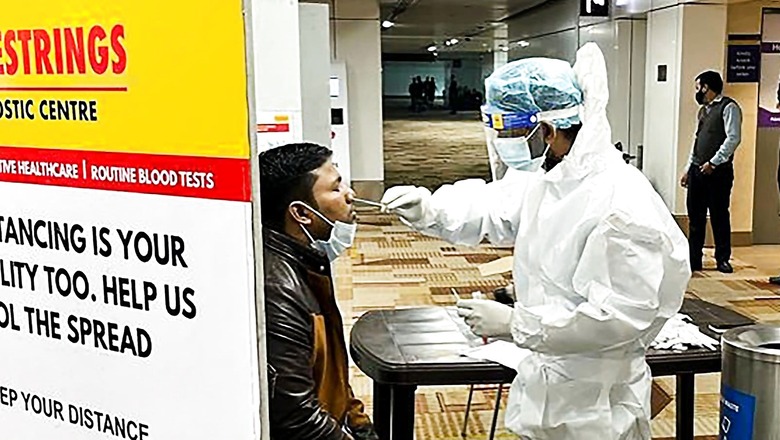
views
India might escape the latest surge in Covid cases that has overwhelmed China, but it has certainly reminded people that the pandemic is far from over.
As infections rise, scientists tracking the deadly virus in wastewaters across cities are urging governments to amp up surveillance to detect any potential wave.
Talking exclusively to News18, former director of Hyderabad-based Centre for Cellular & Molecular Biology (CCMB) Dr Rakesh Mishra says it is possible that India might not face the medical emergency that China is facing at the moment, but it shouldn’t let its guard down.
“We have already gone through what other countries are witnessing now. We have achieved a level of vaccination, with booster doses, and there is hybrid immunity. So, no need to panic just yet. But emergence of any variant is always a matter of concern. If the virus multiplies, it will lead to more variants," he said.
LOOKING FOR CLUES IN SEWAGE WATERS
Dr Mishra leads Tata Institute for Genetics and Society (TIGS), Bengaluru, where scientists have been conducting environmental surveillance of Covid-19. The team has been collecting wastewater samples from 28 Sewage Treatment Plants (STPs) in Bengaluru since August last year to monitor real-time spread of Covid.

In its latest city-wide survey for Bengaluru, they found that the wastewater positivity rate for SARS-CoV2 has decreased to 32% from 60%, after only nine of the 28 sewershed sites were found virus positive.
“We know where the virus is lurking, which municipal wards have infections, and how much. Furthermore, genomic surveillance of these samples tells us which variant is dominant in which part of the city. So if there is a potential outbreak, we can get an early warning almost a week in advance," said the senior scientist.
Unlike the traditional method of testing patients which generally takes longer, the sewage water could help activate early warning much faster. It is economical, practical and requires no more than a few samples across cities. It is now being done in Bengaluru, Pune, Hyderabad, Surat and soon in Vijayawada.
AMP UP GENOMIC SURVEILLANCE TO DETECT NEW VARIANTS
The only way for a virus to survive is genetic changes. And the best way to track those changes is genomic surveillance. However, as new cases began to drop, the number of samples being tested across laboratories also decreased, which meant less sequencing to track new variants.
“To remain a step ahead, we need to increase our surveillance. If the infections are low, and symptoms are mild, people may not show up in hospitals for testing or treatment. But that does not mean the virus has disappeared. It is still lurking somewhere," he says.
According to Dr Mishra, environmental surveillance of Covid-19 will be critical over the next two years. “It’s a technology that has truly arrived. We need to develop a system so that the entire country is covered with wastewater surveillance. And, maybe extend it to other infections like malaria or dengue," he said.
MASK UP, TAKE BOOSTER DOSES
Even if India avoids the latest surge of Covid cases that have overrun its neighbour, the pandemic has reminded the world that it is not over yet. Not just Covid, but there could be other health threats and outbreaks – and thus the need to boost surveillance. Over the last year, several scientific institutions across India have invested in wastewater surveillance, but it is not at satisfactory level just yet, say scientists.
“Unless all people in the world are vaccinated, the virus will still be sitting in some corner. Even after this wave subsides, the virus will stay. Then there are other health threats that we need to constantly monitor, and wastewater could offer the earliest clues to avert a major medical crisis. We aren’t just using it to the optimum just yet," says Dr Mishra.
Meanwhile, for now, he suggested, people continue to take the precautions as before, mask up and not delay their booster doses any longer.
Read all the Latest India News here















Comments
0 comment